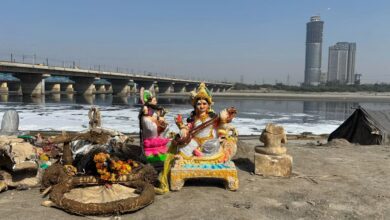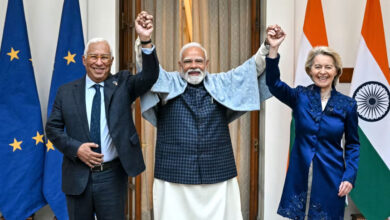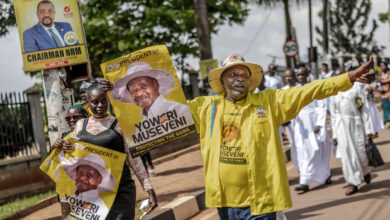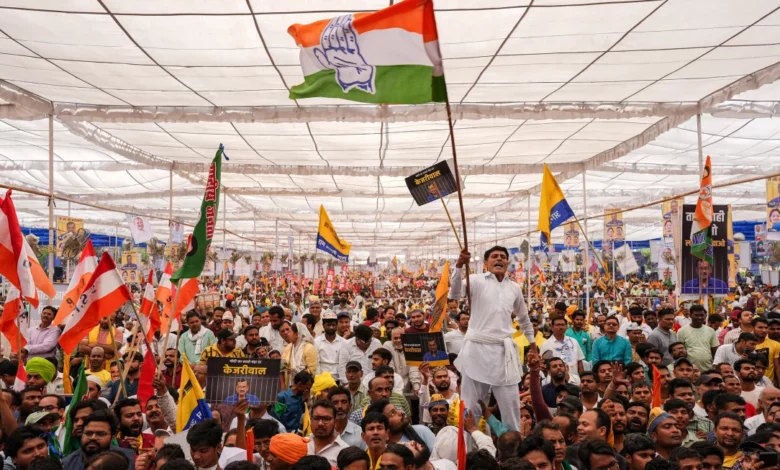
Under the searing New Delhi sun, more than a dozen of India’s top opposition leaders joined hands in a rare show of unity imploring voters to “save democracy.”
Standing before thousands of supporters at the city’s historic and politically important Ramlila Maidan, the March 31 rally marked the opposition’s strongest attempt yet to sway voters against electing Prime Minister Narendra Modi to a third straight term.
The consequence of continued Bharatiya Janata Party (BJP) rule, they say, would be the erosion of the very foundation upon which modern India was built: democracy.
“This election is for saving democracy and we must fight united,” main opposition party Indian National Congress chief Mallikarjun Kharge told the crowds, who were waving the party flag of orange, white and green. “There is no level playing field in this election.”
It echoed a similar rally more than 40 years earlier on the same spot, when opposition leaders fired up huge crowds to help change the course of the 1977 election – ending the 10-year rule of India’s powerful third prime minister and political scion Indira Gandhi.
Gandhi had imposed a state of emergency, jailed key opposition leaders and curtailed civil freedoms. To some, India’s future was perched on a needle point between autocracy and democracy. She lost the election and, in the eyes of many, India’s democracy was saved.
To many supporters in the crowd three weeks ago, India is now at a similar crossroads with this high-stakes election deciding which path the country follows.
“Our democracy is being murdered, India is becoming a dictatorship,” Hazari Lal Rajput, a resident from the northern state of Uttar Pradesh, told CNN at the Ramlila Maidan.
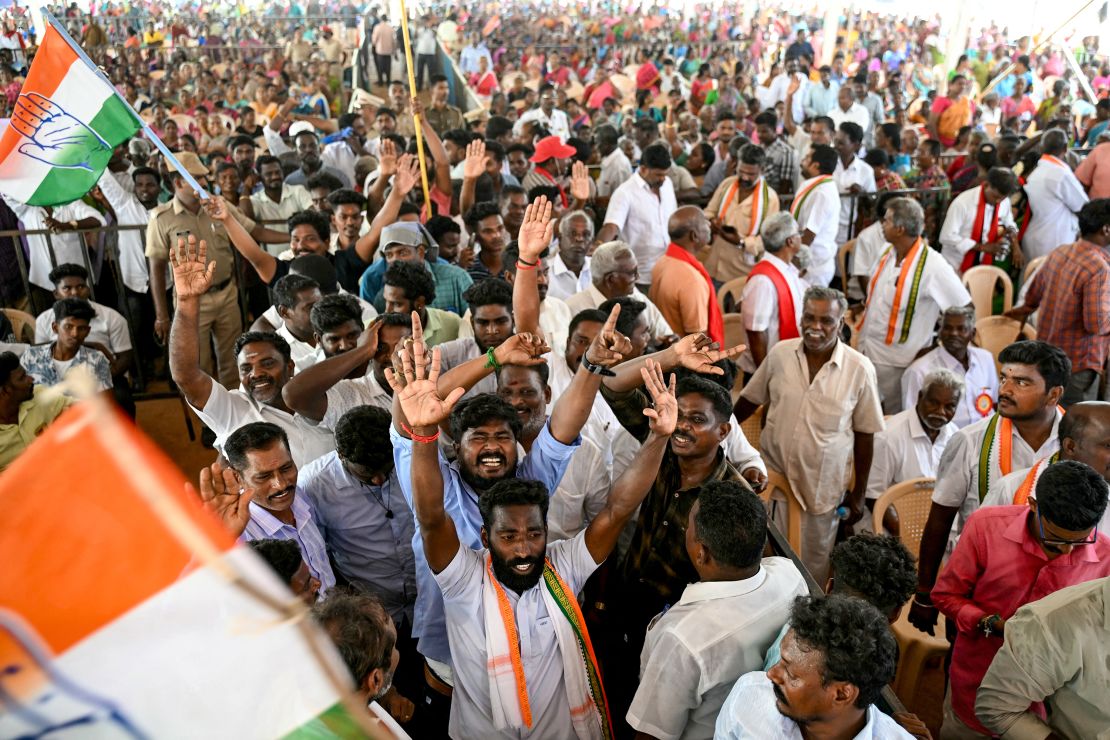
Democracy under threat?
Unless there is a major upset, Modi’s BJP is set to win its third straight five-year term thanks to his potent, populist mix of economic empowerment and Hindu nationalism.
According to 2023 Pew research, about eight in 10 Indian adults have a favorable view of Modi, including 55% who have a very favorable view. Such levels of popularity for a two-term incumbent prime minister defy all modern conventions, both in India and throughout much of the democratic world.
But India’s opposition leaders accuse Modi’s right-wing government of becoming an electoral autocracy by attempting to rig the vote, weaponizing state agencies to stifle, attack and arrest opposition politicians, and undermining democratic principles ahead of elections, which began on April 19 and run until June 1, with results counted on June 4.
They also warn Modi’s brand of Hindu nationalism is uncorking dangerous religious divides in a country with a long and tragic history of sectarian bloodletting.

